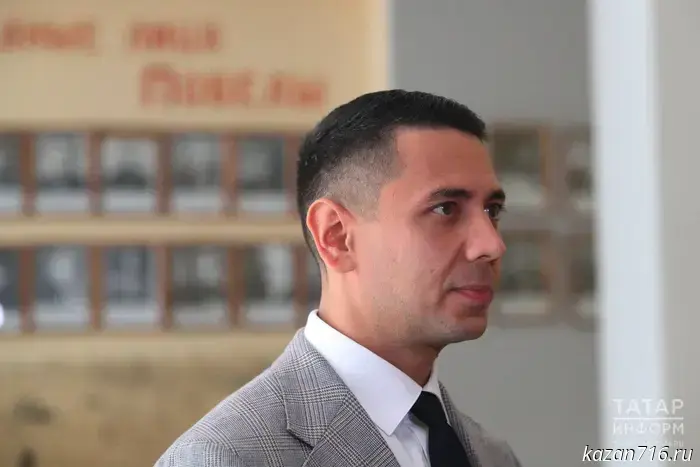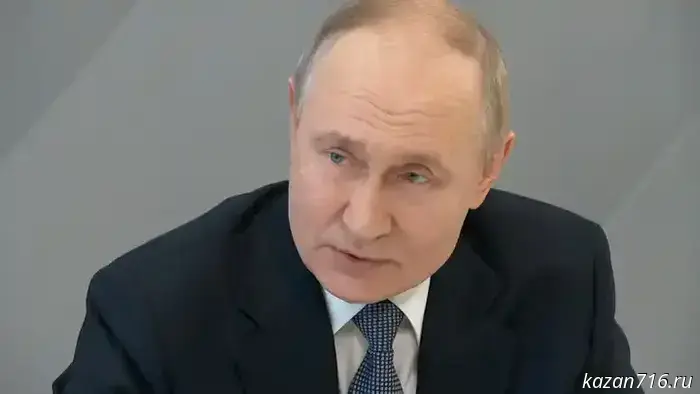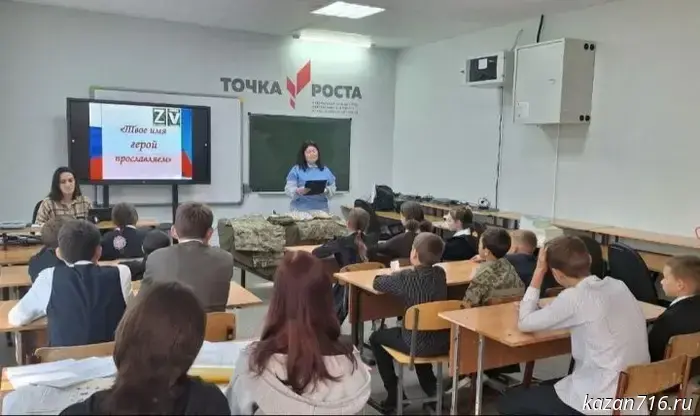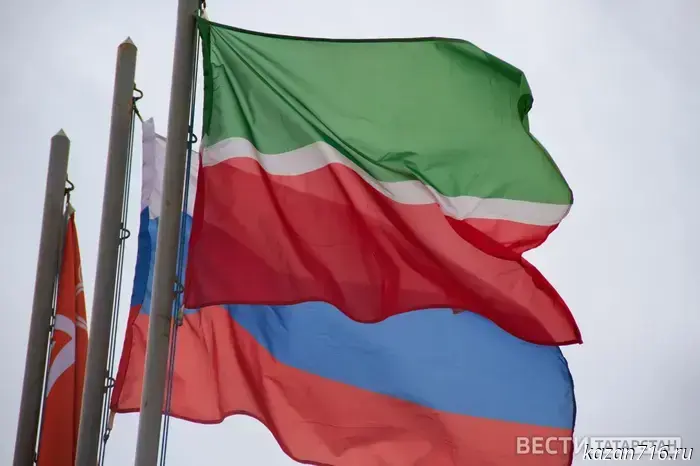
Individual approach: how Tatarstan helps migrant children adapt to school
More than 50 foreign children attend Russian language courses in schools of the Republic of Tatarstan (RT)
82 percent of foreign children successfully passed the Russian language testing
Since April, changes to the federal education law have come into force across all regions of Russia. According to the amendments, migrant children are now admitted to schools based on the results of testing for knowledge of the Russian language. It is also necessary to provide documents confirming the legality of their stay in Russia.
In total, since the new rules came into effect, 554 children applied to enter schools in Tatarstan, of whom 524 were admitted to Russian language testing. Thirty children were unable to present a full set of documents. Eighty-two percent of the children successfully passed the testing.
“This is an indication that the majority of foreign children have been living in Russia for a long time and communicate with the Russian-speaking population. In addition, some of them attended preschool educational institutions in the republic, where they were immersed in the language environment,” Ramis Muzipov, Deputy Minister of Education and Science of the Republic of Tatarstan — head of the Department of Supervision and Control in the Field of Education at the Ministry of Education and Science of the RT, told Tatar-inform.
Children of foreign citizens are admitted to testing only after verification of all documents confirming the legality of their stay in Russia. Testing is conducted on the last Wednesday of each month. Six stages have already been held. Tasks were prepared by Rosobrnadzor (the Federal Service for Supervision in Education and Science) for each grade of primary, basic and secondary school.
Accelerated Russian language instruction is carried out in 54 schools of the republic
Children who do not pass the testing may retake it in three months. In Tatarstan, all conditions have been created for them to study Russian. In particular, additional courses have been organized, Muzipov noted.
According to him, an accelerated Russian language program for children of foreign citizens has been developed, designed for 72 hours. Training can be taken in 54 schools in the republic.
“To date, 54 children attend such courses in educational organizations. And 17 children are learning Russian through self-study; consultations with schools are organized for them. Additionally, venues for studying Russian have been opened in Houses of Peoples’ Friendship in Kazan, Naberezhnye Chelny, Nizhnekamsk and Almetyevsk. Russian language instruction is also provided by a Sunday school,” the deputy minister of education and science said.
He clarified that there is a republican program developed by Russian language experts based on many years of experience working with children of foreign citizens, as well as a program created based on sample test tasks.
“Rosobrnadzor immediately published demonstration versions of the tests. And a program was developed based on them. The teacher sees the volume of tasks for each grade and understands how to form the training program. That is, to teach Russian at the level required, for example, for the first grade, so as not to overload the child with more complex constructions that children will study in the second and third grades,” Muzipov emphasized.
The program has shown its effectiveness — children studying under it successfully master Russian, he added.
“The system of educating foreign citizens is not new for Tatarstan”
For a long time now, foreign children in Tatarstan have undergone social, cultural and educational adaptation, Muzipov said.
“The changes to the law were adopted only this year, but that does not mean that children of foreign citizens began studying Russian only now. The system of educating foreign citizens is not new for Tatarstan. It is the testing that has become structured and unified across Russia,” he stressed.
The deputy minister of education and science noted that previously, diagnostics of Russian language knowledge were also conducted to ensure the comfortable integration of migrant children into the education system.
“Some places conducted interviews, and others testing; other forms were used before enrollment in school or afterward. This diagnostics was varied, and it existed in all schools. There were no complaints about this model, because it allows the entry of children of foreign citizens into our society to be unobtrusive. The methods were developed long ago, tested and have proven their effectiveness,” he observed.
Based on the results of diagnostics, an individual card, or trajectory of the child's development, was formed. “That is, emphasis was placed on the accelerated remediation of knowledge deficits to more quickly immerse them in the language environment. In particular, additional clubs and sections were organized for the children,” Muzipov added.
“In schools with fewer foreign children, lessons can be of an individual nature”
Schools in Tatarstan that enroll migrant children have their own methodological developments and mechanisms for social adaptation. It all depends on the number of foreign students, their age and their level of Russian language proficiency, the deputy minister of education and science said.
For example, Kazan school No. 51 is attended by representatives of 15 nationalities, including many migrant children. Therefore, for more than five years the educational institution has conducted Russian language courses.
As the practice of this school has shown, one hour of additional classes per week is enough for a student who has a poor command of Russian to master the knowledge necessary for their age within three months.
“In schools with fewer foreign children, classes can be not group-based, but consultative or individual. If one, two or three children are studying, especially in different grades, there is no point in gathering them together. It is sufficient to work with them individually,” he explained.
In addition, throughout the school year foreign children are actively involved in school, municipal and republican events alongside all pupils. Teachers work not only with the students but also with their parents. This work includes individual consultations on child development and upbringing, career guidance, extracurricular activities, and participation in joint events.
Photo: © Mikhail Zakharov / Tatar-inform
Другие Новости Казани (Казань716)
 Temperatures of up to +23 °C are expected in Mendeleyevsk on September 22.
No precipitation expected.
Wind west to southwest 6–11 m/s. Locally gusting to 14 m/s. 22.09.2025. Mendeleev News. Republic of Tatarstan. Mendeleevsk.
Attack on Foros: people killed
State Duma deputy Mikhail Sheremet said that a response to the attack by the Ukrainian Armed Forces is inevitable
As a result of a drone attack on the resort area in the settlement of Foros, three people were killed and another 16 were injured. 22.09.2025. Real Time. Republic of Tatarstan. Kazan.
Temperatures of up to +23 °C are expected in Mendeleyevsk on September 22.
No precipitation expected.
Wind west to southwest 6–11 m/s. Locally gusting to 14 m/s. 22.09.2025. Mendeleev News. Republic of Tatarstan. Mendeleevsk.
Attack on Foros: people killed
State Duma deputy Mikhail Sheremet said that a response to the attack by the Ukrainian Armed Forces is inevitable
As a result of a drone attack on the resort area in the settlement of Foros, three people were killed and another 16 were injured. 22.09.2025. Real Time. Republic of Tatarstan. Kazan.
 Peskov said how Ukrainian colleagues "hissed" at him over the St. George ribbon.
Dmitry Peskov shared an incident in which Ukrainian colleagues expressed displeasure about his wearing of the St. George ribbon. 21.09.2025. GTRK Tatarstan. Republic of Tatarstan. Kazan.
Peskov said how Ukrainian colleagues "hissed" at him over the St. George ribbon.
Dmitry Peskov shared an incident in which Ukrainian colleagues expressed displeasure about his wearing of the St. George ribbon. 21.09.2025. GTRK Tatarstan. Republic of Tatarstan. Kazan.
 In Kazan, the asphalt collapsed under a car.
The road surface collapsed twice within 24 hours
Emergency services reacted quickly to the incident. 21.09.2025. Komsomolskaya Pravda Kazan. Republic of Tatarstan. Kazan.
In Kazan, the asphalt collapsed under a car.
The road surface collapsed twice within 24 hours
Emergency services reacted quickly to the incident. 21.09.2025. Komsomolskaya Pravda Kazan. Republic of Tatarstan. Kazan.
 In Zainsk, schoolchildren were told about local heroes and the strength of the home front as part of a patriotic event.
On September 18, the Zainsk Museum held a patriotic event "We Honor Your Name, Hero" for students of local schools. September 21, 2025. Zainsk-Inform. Republic of Tatarstan. Zainsk.
In Zainsk, schoolchildren were told about local heroes and the strength of the home front as part of a patriotic event.
On September 18, the Zainsk Museum held a patriotic event "We Honor Your Name, Hero" for students of local schools. September 21, 2025. Zainsk-Inform. Republic of Tatarstan. Zainsk.
 Today, at a session of the Kazan City Duma, the mayor of Kazan will be elected.
Today, at the first session of the Kazan City Duma of the fifth convocation, the election of the mayor of the capital of Tatarstan will take place. 22.09.2025. GTRK Tatarstan. Republic of Tatarstan. Kazan.
Today, at a session of the Kazan City Duma, the mayor of Kazan will be elected.
Today, at the first session of the Kazan City Duma of the fifth convocation, the election of the mayor of the capital of Tatarstan will take place. 22.09.2025. GTRK Tatarstan. Republic of Tatarstan. Kazan.
Individual approach: how Tatarstan helps migrant children adapt to school
More than 50 foreign children attend Russian language courses in schools of the Republic of Tatarstan 82 percent of foreign children successfully passed the Russian language test As of April, changes in fe dated 22.09.2025 have come into effect in all regions of Russia. Tatar-inform News Agency. Republic of Tatarstan. Kazan.
